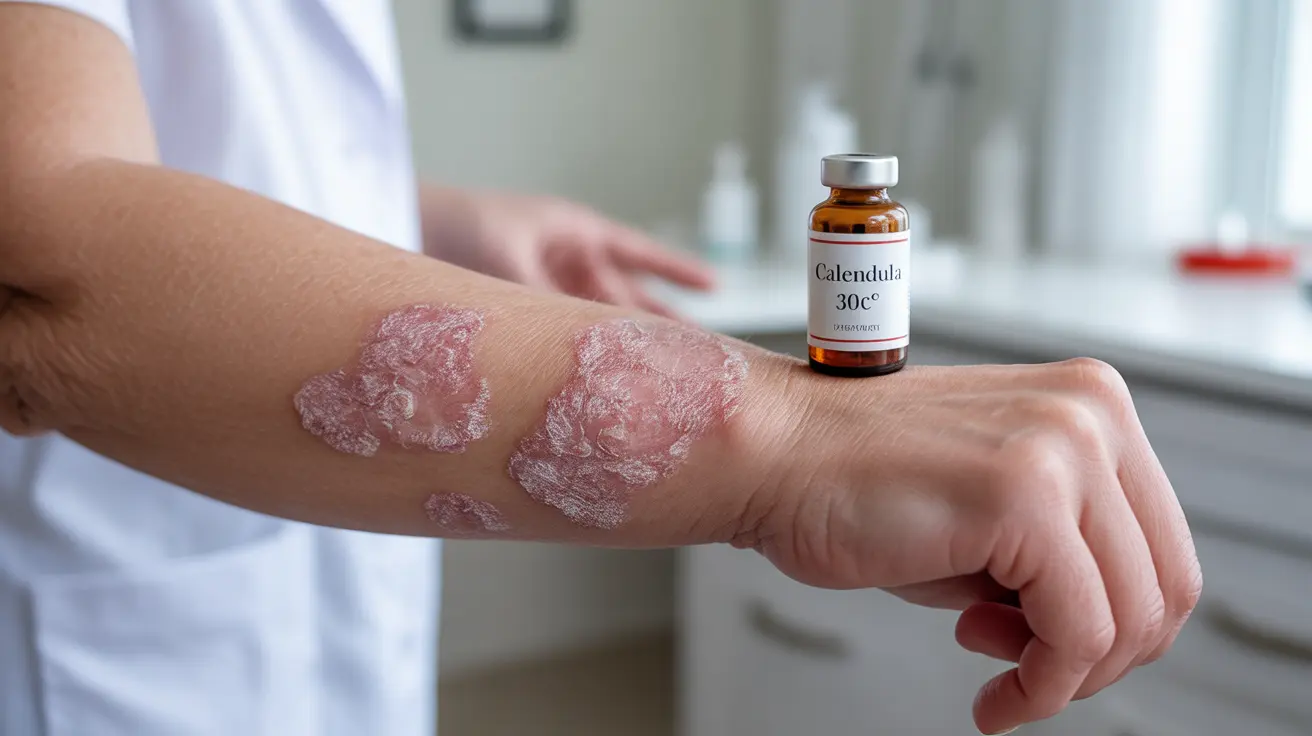Living with psoriasis can be challenging, and many people seek alternative treatment options to complement their conventional care. Homeopathic remedies for psoriasis have gained attention as a potential natural approach to managing this chronic skin condition. This comprehensive guide explores the world of homeopathic treatments, their effectiveness, and important considerations for those interested in this alternative therapy.
Understanding Homeopathic Treatment for Psoriasis
Homeopathy is based on the principle of "like cures like," using highly diluted substances that would, in larger amounts, cause symptoms similar to those being treated. When considering homeopathic remedies for psoriasis, it's essential to understand that this approach differs significantly from conventional medical treatments.
Common Homeopathic Remedies Used for Psoriasis
Arsenicum Album
This remedy is often prescribed for dry, scaly skin conditions accompanied by burning sensations and anxiety about health. It may be particularly relevant for psoriasis that worsens at night or with cold exposure.
Graphites
Traditionally used for thick, cracked skin conditions, Graphites is sometimes recommended for psoriasis characterized by thick scales and fissures, particularly when the skin tends to ooze a honey-like fluid.
Sulfur
This common homeopathic remedy is often suggested for itchy, burning skin conditions. It may be prescribed when psoriasis plaques are particularly red and irritated, with symptoms that worsen with heat.
The Scientific Perspective
While many people report positive experiences with homeopathic treatments, it's important to note that scientific evidence supporting their effectiveness for psoriasis is limited. Most studies are small-scale or lack rigorous scientific methodology, making it difficult to draw definitive conclusions about their efficacy.
Safety Considerations and Potential Risks
Although homeopathic remedies are generally considered safe due to their high dilution, there are important considerations to keep in mind:
- Potential interactions with conventional medications
- Quality control variations among manufacturers
- Risk of delaying more effective conventional treatments
- Possibility of allergic reactions to certain ingredients
Working with Healthcare Providers
Before starting any homeopathic treatment for psoriasis, it's crucial to:
- Consult with a qualified healthcare provider
- Discuss your current medications and treatments
- Share your complete medical history
- Maintain open communication about all treatments you're using
Frequently Asked Questions
What are the commonly used homeopathic remedies for treating psoriasis and how do they work?
Common homeopathic remedies for psoriasis include Arsenicum Album, Graphites, and Sulfur. These remedies work based on the homeopathic principle of "like cures like," where highly diluted substances are used to stimulate the body's natural healing response. Each remedy is selected based on specific symptom patterns and individual characteristics of the condition.
Is there scientific evidence supporting the effectiveness of homeopathic treatments for psoriasis?
Scientific evidence supporting homeopathic treatments for psoriasis is currently limited. While some small studies and case reports suggest potential benefits, large-scale, rigorous clinical trials are lacking. More research is needed to definitively establish the effectiveness of these treatments.
What are the potential risks or side effects of using homeopathic remedies for psoriasis?
While homeopathic remedies are generally considered safe due to their high dilution, risks can include allergic reactions, interactions with conventional medications, and the potential delay of more effective treatments. Quality control issues with some manufacturers can also pose risks.
How should I talk to my doctor before trying homeopathic remedies for psoriasis?
When discussing homeopathic remedies with your doctor, be open about your interest in alternative treatments, share your complete medical history, list all current medications, and ask about potential interactions or risks. It's important to maintain transparent communication throughout your treatment journey.
What are the differences between homeopathic and conventional medical treatments for psoriasis?
Conventional treatments typically target specific mechanisms of inflammation and skin cell growth, while homeopathic treatments aim to stimulate the body's natural healing responses through highly diluted substances. Conventional treatments generally have more scientific evidence supporting their effectiveness, while homeopathic approaches are based more on traditional use and individual response patterns.




